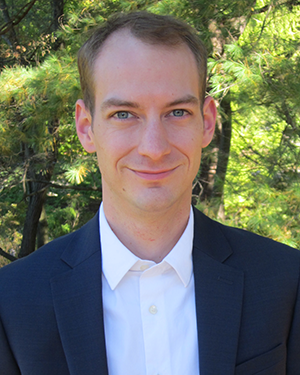Dr. Paul Condon (Northeastern University) is co-PI of the SMV-funded research project “Self and Desire as Seeds of Virtue: A Buddhist-Inspired Multi-Method Investigation.” His collaborators include co-PI, Dr. Christine Wilson-Mendenhall (Northeastern University), Dr. John Dunne (University of Wisconsin–Madison) and other research team members.

Meet Our Researchers – Paul Condon

PAUL CONDON (PhD in Social Psychology, Northeastern University, 2014) is a postdoctoral research fellow in the Interdisciplinary Affective Science Laboratory at Northeastern University. His research focuses on the role of emotions and meditation practices in shaping prosocial behavior and health-related outcomes. Learn more about his work and publications at https://pccondon.wordpress.com.
My research focuses on the role of compassion in shaping prosocial behavior and supportive relationships, and contemplative practices to increase compassion. In a series of studies, I have investigated the impact of compassion on moral-decision making, whether meditation increases compassion, and the psychological processes that explain how compassion and meditation work.
My interest in compassion as a topic of academic research was shaped through a Jesuit education and a series of psychology courses on human emotion, flourishing, suffering, and attachment. One experience in particular sparked my interest in compassion. In a course on the psychology of suffering, attachment, and contemplative practice, the professor, Kent Hoffman, asked each student to write on a 3×5 card “the voice in your head that you wish you did not have to listen to throughout the day”. Dr. Hoffman then read aloud the anonymous statements: You are not worthy to be loved. You will always be alone. You’ll never accomplish anything. It’s only going to get worse. Our voices revealed a common thread of self-criticism, doubt, fear, and shame. I was struck by the suffering that seemed to define the human condition, but also the potential to transcend that suffering through compassion and social connection. Sharing this experience with classmates lessened the burden that we each individually carried, and compassion for others revealed a doorway to building a stronger community.
Through further reading and experience with meditation practice, I learned that compassion is a cherished virtue that transcends cultural and spiritual traditions. For example, leading figures such as Martin Luther King Jr. and the Dalai Lama have discussed compassion as a common solution to concerns of social justice and human flourishing. These experiences and insights motivated me to study compassion in my doctoral research, and they were the seeds for my interest in exploring these topics from an interdisciplinary perspective that integrated science and Buddhist philosophy.
As a graduate student at Northeastern, I was fortunate to meet a group of scholars dedicated to interdisciplinary research. Lisa Feldman Barrett and Karen Quigley came to Northeastern as co-directors of the Interdisciplinary Affective Science Lab (IASL). Lisa and Karen both cultivated an environment that welcomed the integration of science and philosophy, which supported my interest to include Buddhist studies in my research, and I was eager to join the team as a post-doc.
Shortly after Lisa and Karen joined Northeastern, Christy Wilson-Mendenhall arrived as a post-doc. Christy and I shared interests in Buddhist philosophy and began discussing ideas at the intersection of psychology and Buddhism, and saw the opportunity to address new research questions about compassion and emotion. With our excitement, we reached out to John Dunne to begin writing collaborative papers about the intersection of Buddhism and psychology. Our conversations with John were also facilitated by events hosted by the Mind and Life Institute, such as their annual Summer Research Institute, which John and our collaborator Wendy Hasenkamp helped organize for some time. Christy, John, Wendy, and I each participated in Mind and Life events, so we all had experience and mutual interest in each other’s respective fields. When SMV put out the call for proposals, we realized it was the perfect opportunity to extend our collaboration into an empirical project.
Our project is examining experiences of compassion and mindfulness among romantic partners in everyday life. Romantic relationships are particularly interesting because they pose an interesting paradox. On one hand, romantic partners can be one’s greatest source of solace, and they can contribute greatly to a person’s health and wellbeing. Yet romantic relationships can also be a great source of stress and conflict. This presents a critical opportunity to examine how virtues give rise to flourishing in a real-world context.
The SMV goal to build collaboration between science and the humanities is central to my research interests and goals. By integrating Buddhist philosophy with science, my colleagues and I have produced new hypotheses about flourishing in romantic relationships (even though Buddhism does not directly address romantic relationships!). We are grateful to be a part of the SMV project and share our efforts and goals within this interdisciplinary community.
